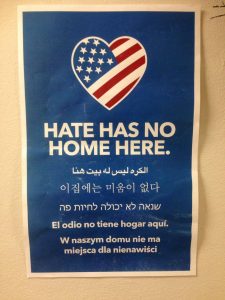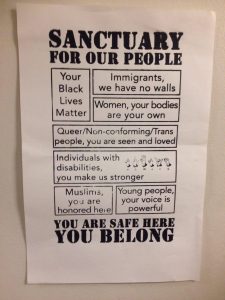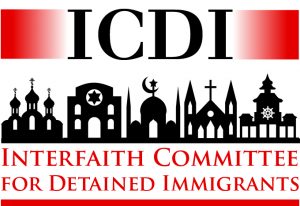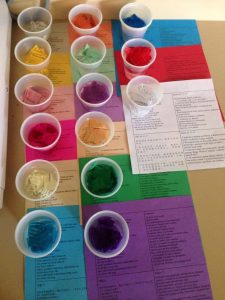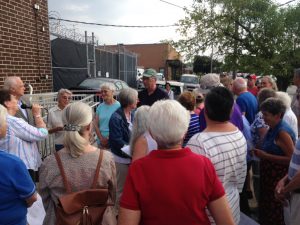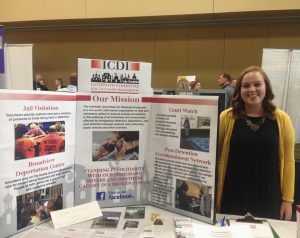Dedicating my summer to the CAPS Program, and more specifically the Interfaith Committee for Detained Immigrants, is not something I think I could have properly prepared myself for, but now that I have had some time to reflect on the entirety of the experience I am even more grateful for this opportunity. This past spring semester I studied abroad in Southern Africa, and came back with a lot of thoughts and feelings, and was hit harder with reverse culture shock than I had expected. Being in Chicago proved as a good transition back into the United States, or at least back to Valpo. I grew up on a cow farm, so living in the South Loop on the 15th floor of an apartment complex and driving in Chicago traffic was just as foreign to me as the countries in Southern Africa. Working with ICDI, I had the opportunity to learn about the entirety of the U.S. immigration system, immerse myself in interfaith dialogue, learn the ins and out of a non-profit organization, and see the first hand effects of our ever changing politics after only getting my political information after the presidential inauguration through a skewed lens(being abroad, local residents giving their opinion on U.S. politics, people fearing for me how the U.S. would be different once I got home). Reflecting on many of my experiencing, I am just beginning to fathom how much I have learned.
Participating in pastoral care with individuals in immigration detention centers gave me the opportunity to have interfaith dialogue and speak with people across different cultures, background, histories, and religion. Attending Immigration Court gave me the knowledge and understanding of the court system to speak confidently about the root of my beliefs when it comes to immigration within the United States. I have learned how to be more active in human rights dialogue through different venues within my internship, making connections with others, and living within the CAPS community. I have been able to raise more awareness for human rights issues and work towards dismantling the systems of oppression within our society. All ideas and passions that were more fully developed during my study abroad experience and learning firsthand about systems of oppression within the Southern African context in relationship to Apartheid, Namibian genocide, and making connections to similar events that have taken place within the United States such as the Native American Genocide, Segregation, and blatant racism. Through my participation in ICDI I learned more about non-profit organizations in a United States context and found affirmation for my sense of calling to attend seminary and do pastoral care through a lens of social justice in the future.
With such an intense internship, it was necessary to process with other people and decide what the take away of the day, week, or summer had been. In communicating with other CAPS Fellows in Chicago, we realized many of us had grown up with parents from the generation of “You don’t talk about religion, politics, or money.” I always questioned this growing up and was given various answers as to why not to talk about these things: “People might not agree with you”, “It’s just being polite”, “There are nicer things to talk about.” As I have quickly learned at University, avoiding conversation about these topics is exactly the opposite of what we should be doing, and shows the vast amount of privilege we were raised with. Not talking about religion shows our religious freedom. I have learned that talking to those whose understanding of faith is different than my own, and it has led to fascinating conversation and reflection about why we carry out our religious practices the way we do. Avoiding the topic of politics, especially today, shows a certain amount of privilege. If the majority of the white, middle class, English speaking population were to not follow the news, they would be able to assume that there is nothing happening in the world that is directly affecting them. This population is safe and has nothing to worry about. Many minority populations are, have been, and will continue to be directly affected by politics and national news, including but not limited to immigrants, people of color, non-English speakers, those living in poverty, black lives, the LGBTQ community, Muslims, and more. And lastly, being able to avoid the topic of money, or not worry about money is a privilege many do not have as a majority of the wealth in our country is held by a very small percentage of United States residents, a gap that is continually becoming wider and wider.
Other aspects of my internship that had a large effect on my learning within the experience were speaking with my mentor, and reflecting on ideals of leadership and purposeful work. Conversations with my mentor were highly motivating in following my passions and not working to meet the expectations others have about me, and focusing on the social justice issues I am most passionate about and have the most need despite the levels of controversy and debate surrounding certain issues. We talked about the importance of mindful conversation, especially with those different from one’s self, advocating for one’s self, and the importance of self-care amongst passionate work. While this summer’s internship was one of the most challenging experience I have been a part of to date, I am very thankful for the work I was able to for ICDI, and for the countless number of lessons, conversations, and unforgettable moments I had the blessing of being a part of.
I owe so much of what I have learned from those who have come before me and have been doing advocacy work for years and years. The two Sisters who began ICDI have the largest passion for equality for ALL people that I have ever seen. It is purely inspirational and motivating hear their story of all the obstacles they have overcome to open safe houses for immigrants, fundraise, begin a court watch program, pass a state law to give those in detention the right to pastoral care, and stand on the steps of the Broadview Detention Center every Friday for ten years to hold a prayer vigil for families being separated by deportation. These two Sisters have reached out over the years to hundreds of individuals that volunteer and participate with ICDI weekly. I am grateful for other volunteers I worked alongside with and learned from, and supervisors who shared their stories and wisdom with me. While I am glad I am back at school, I will be missing working every day with these important and necessary ministries, but I know I will be back to volunteer as often as I can.
If you feel called to help as well, ICDI always welcomes more volunteers: http://www.icdichicago.org/
